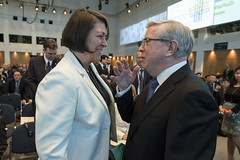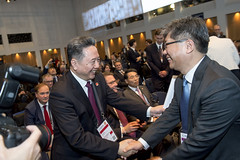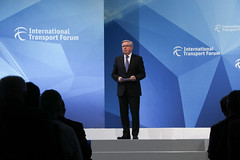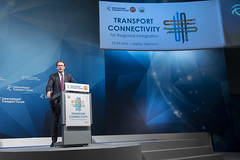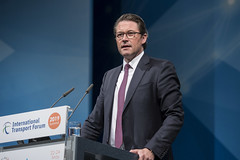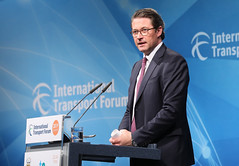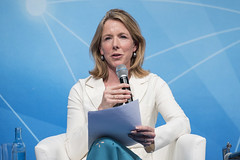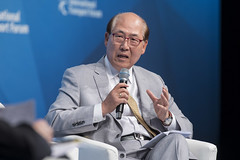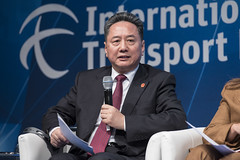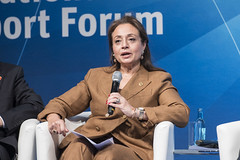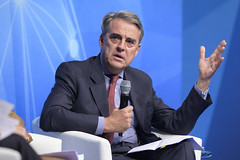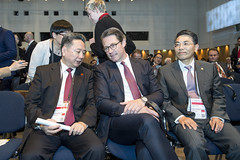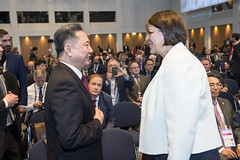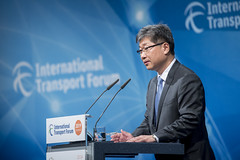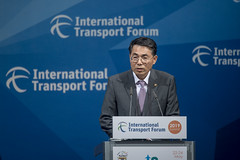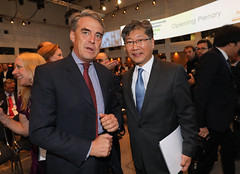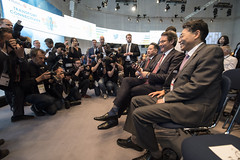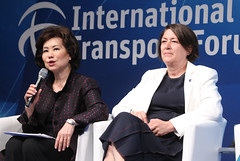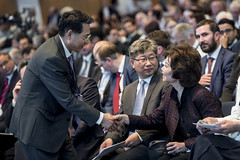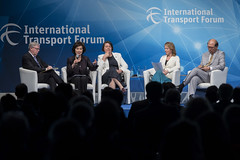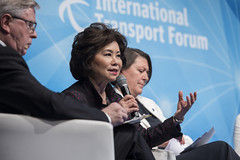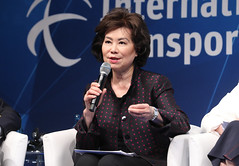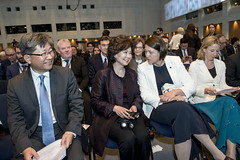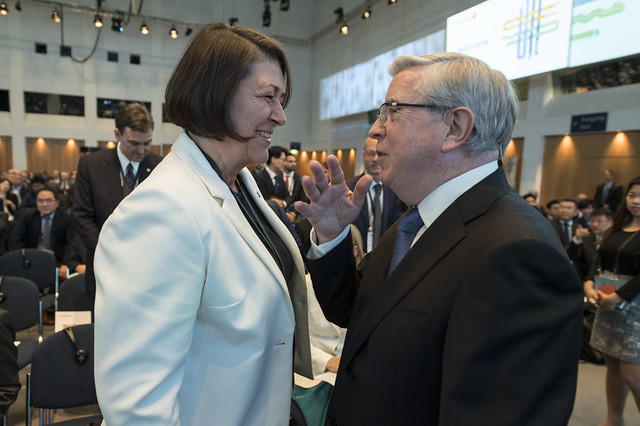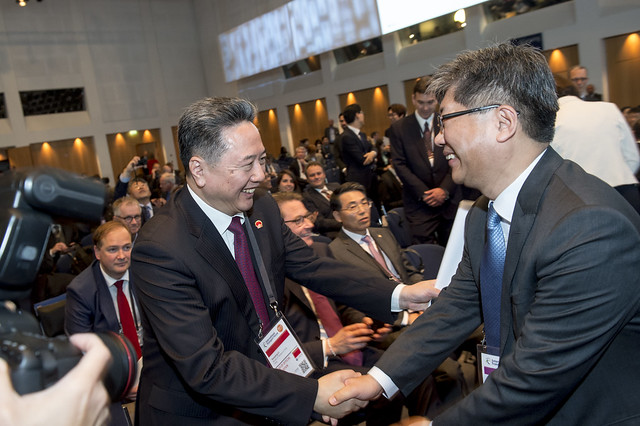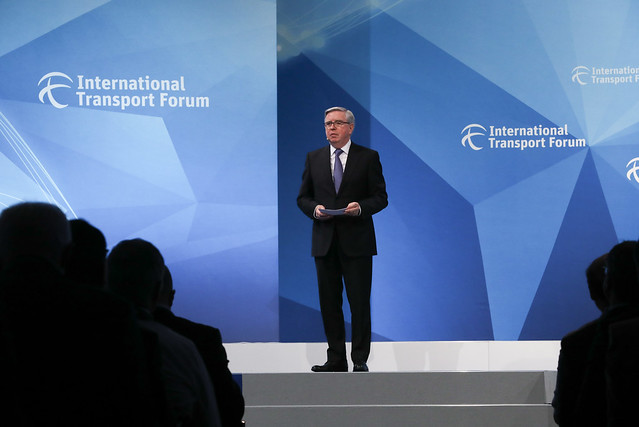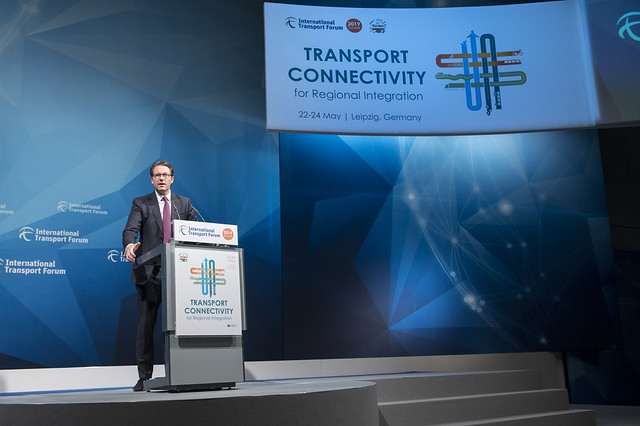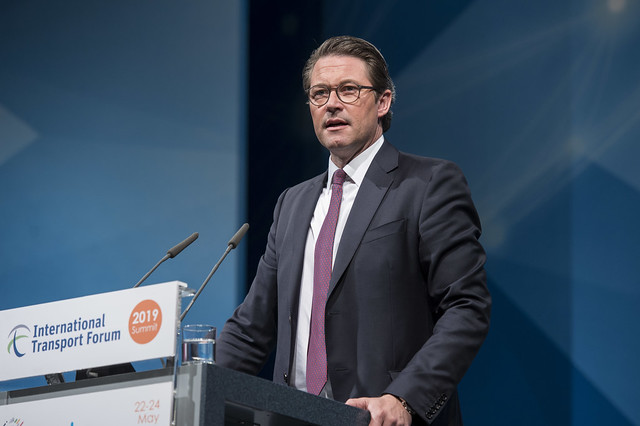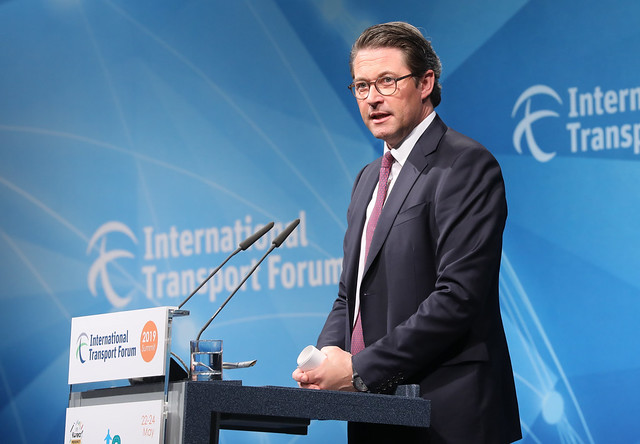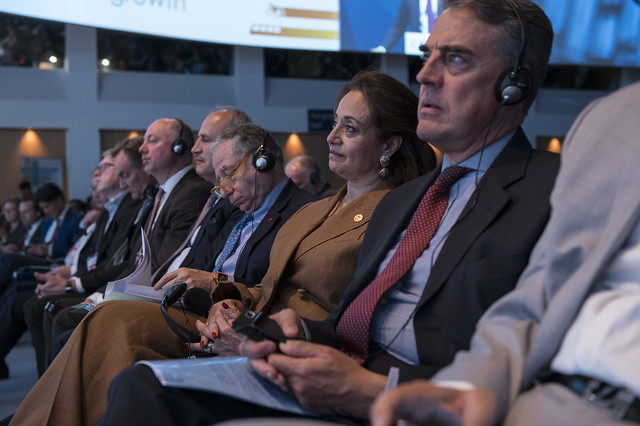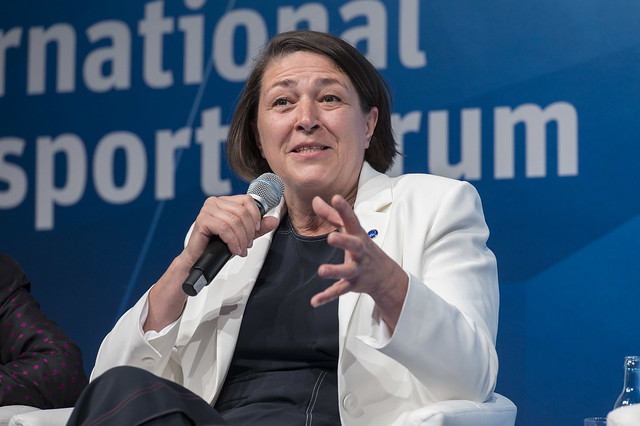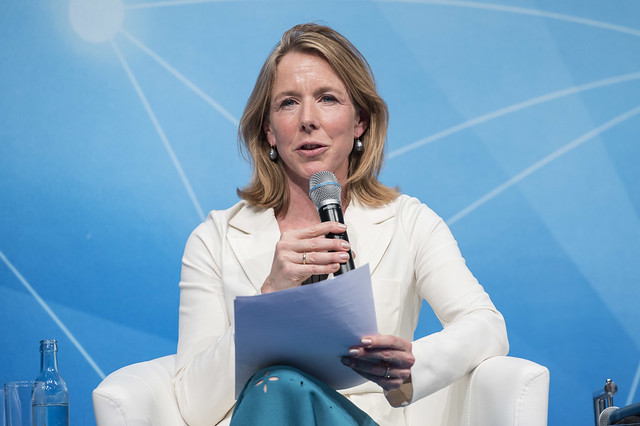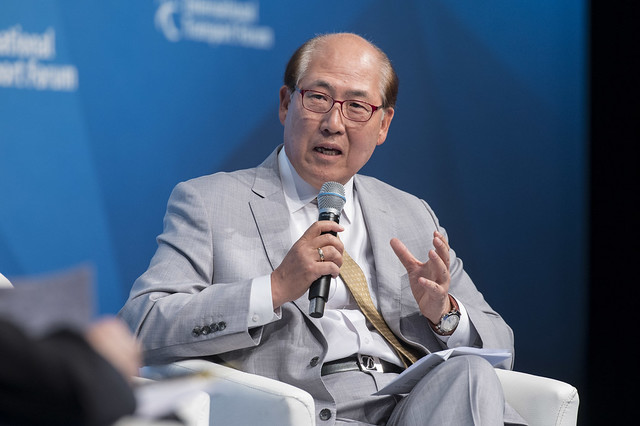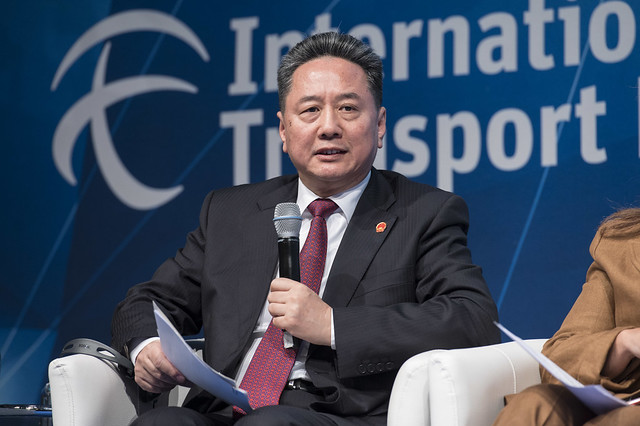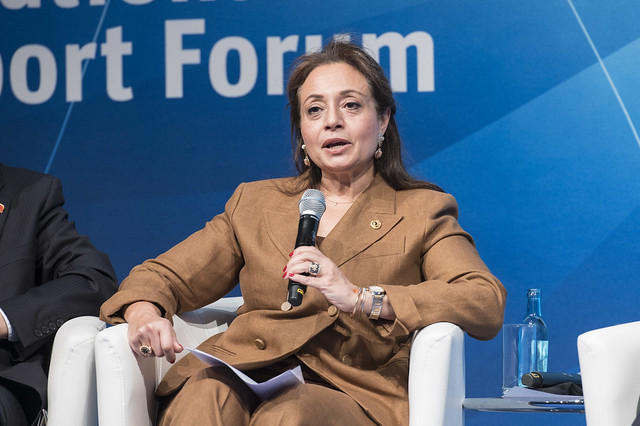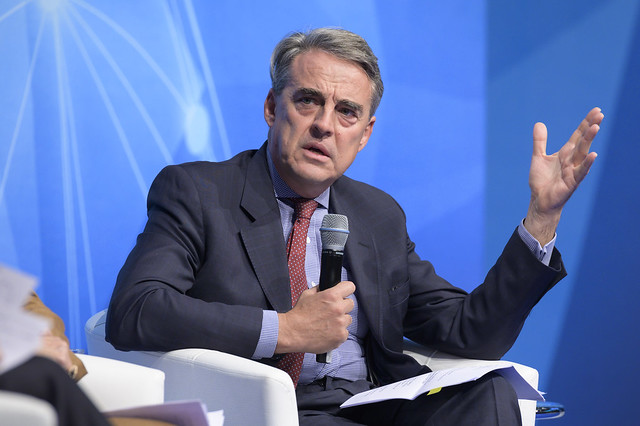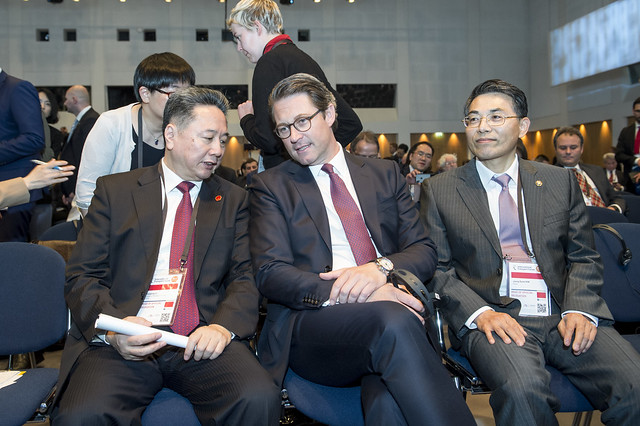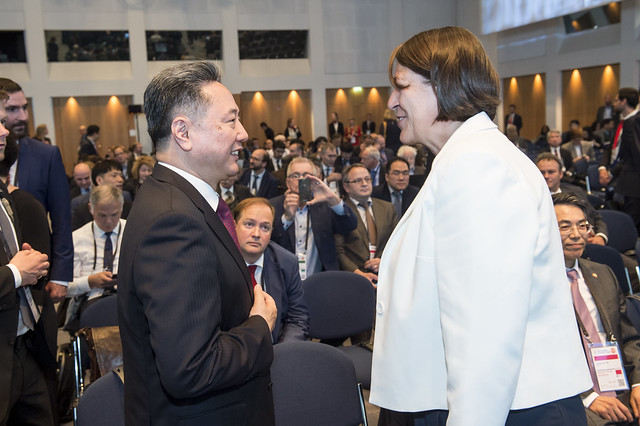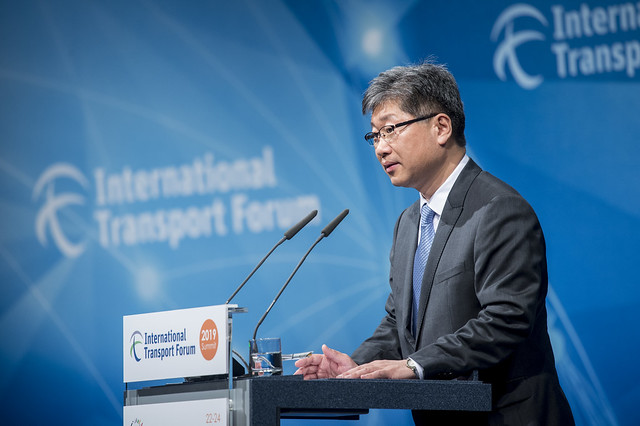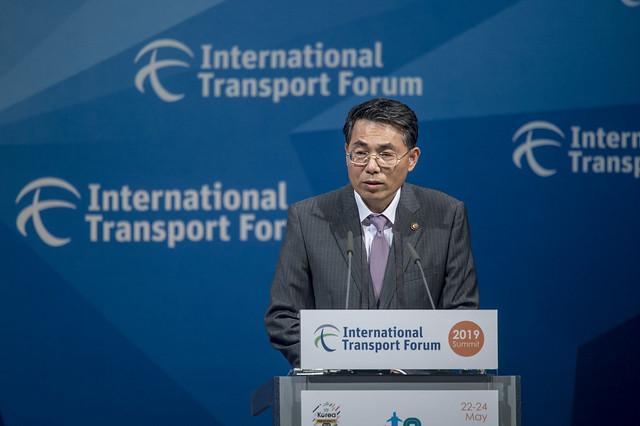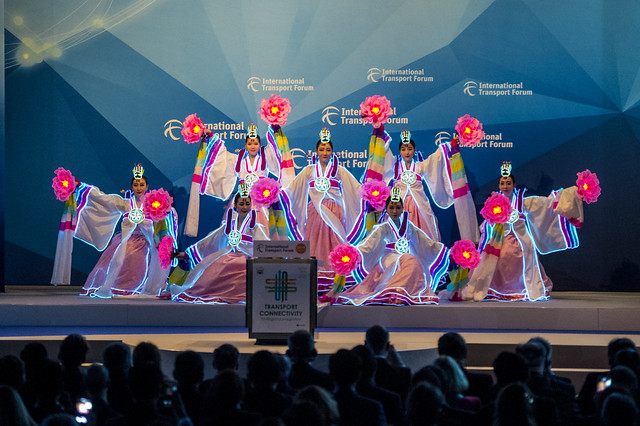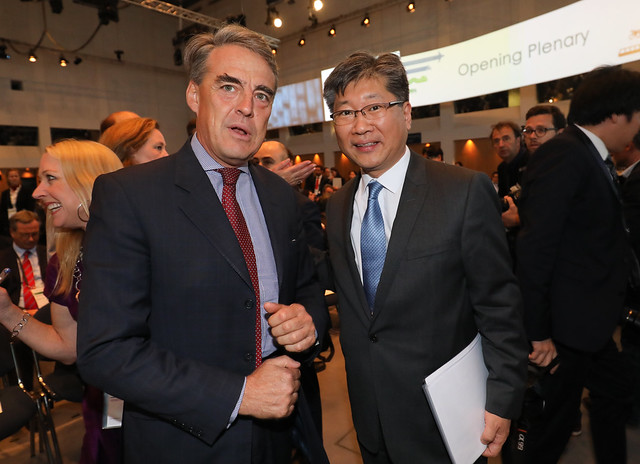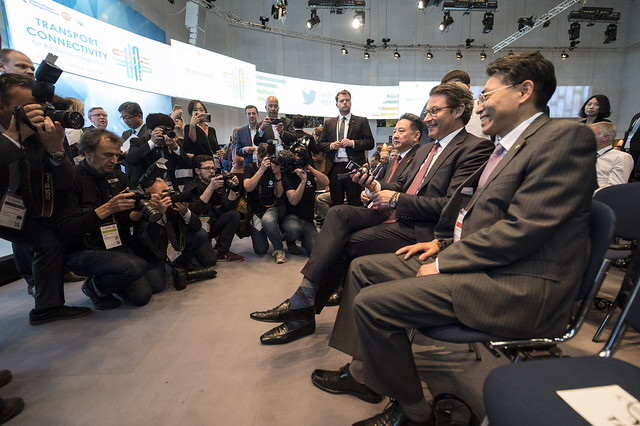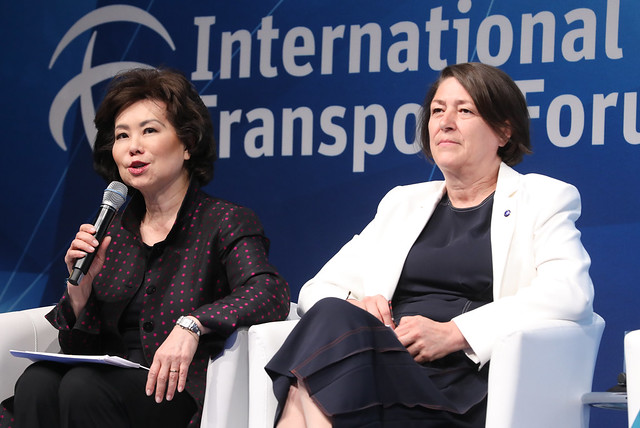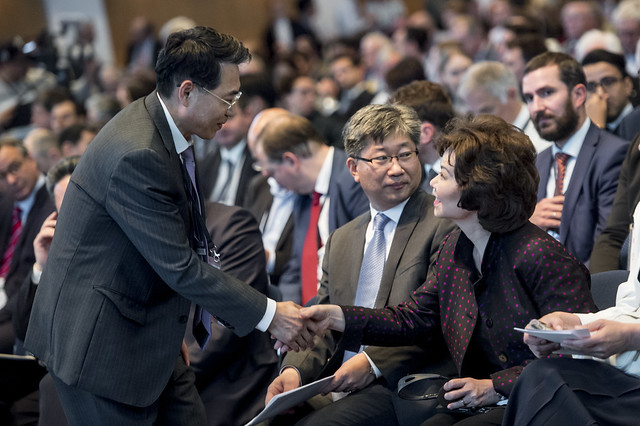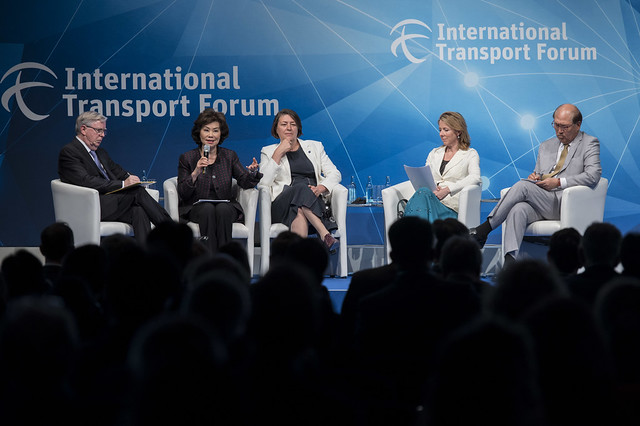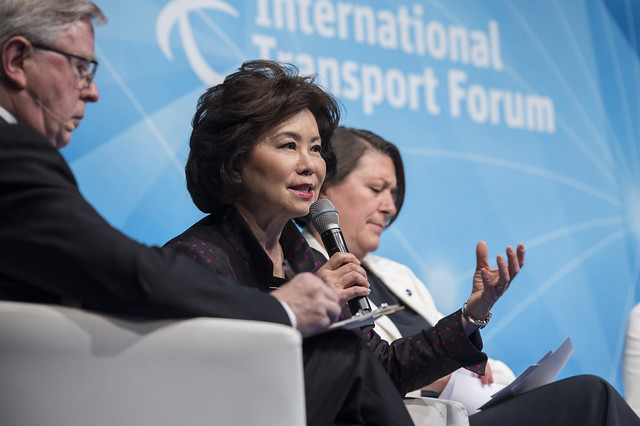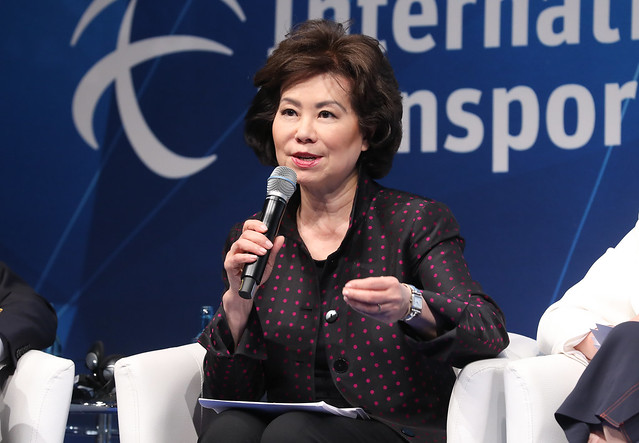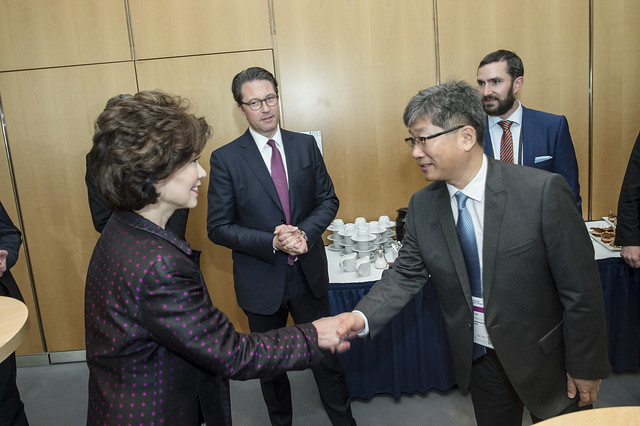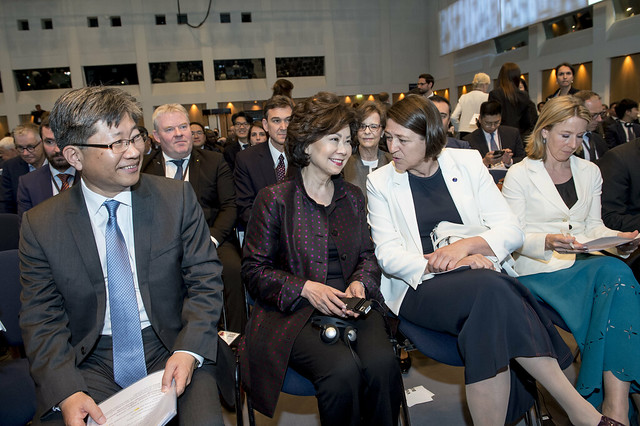Young Tae Kim, Secretary-General of the ITF stressed that “connecting people with each other is important for prosperity and peace” by yielding increased possibilities for trade and other interactions between people. Building transport infrastructure and increasing flows between different regions is essential for building and maintaining peace. Connectivity is a “mega-trend” of the 21st century that is reshaping the world beyond the transport sector. Accordingly, policy-making must be integrated across sectors to ensure the potential benefits of enhanced connectivity are maximised.
Jeong Ryeol Kim, Korea’s Vice-Minister of Land, Infrastructure and Transport noted that, in addition to creating more opportunities for investment and growth, improving connectivity has wider benefits, helping to open countries and bringing cultures together. Better connectivity closes gaps between classes and regions and is thus essential to more inclusive growth. By blurring borders and facilitating understanding between people, it underpins and promotes world peace. However, such outcomes are not inevitable: Laying down roads is not just about connecting places, it is about allowing someone in from outside, and someone to venture out. If we are afraid of invasion, we cannot open new roads. Thus we need to build trust as a pre-condition of connectedness.
Mr Andreas Scheuer, the German Federal Minister for Transport and Digital Infrastructure also highlighted the cross-sectoral impacts of transport policy in general and connectivity in particular, noting that mobility is the fuel of a powerful economy. Equality in living standards must be addressed not only within urban clusters, but in relation to regional centres and rural areas. Connectivity is central to achieving this goal. It is also important to understand that promoting connectivity in regional and rural areas can yield significant benefits in the wider society, for example by reducing population pressures and congestion problems in major urban centres.
Mobility has a social dimension, as it determines the ability to participate, which in turn is significant for health and wellbeing. Participation and freedom enable us to live a good life. German history shows the importance of people being able to meet and understand each other. Mobility and connectivity were the decisive factors in Germany’s reunification. It was essential to close the gap between the two parts of Germany and transport infrastructure was key to this. It is similarly important to send a signal that we need an open Europe, especially in the current environment. We need a united Europe to preserve and enhance peace, and affordable, accessible mobility, which also serves the environment is crucial to this.
On top of its contributions for societal development, connectivity is essential for economic growth and wider prosperity at all scales. Commissioner Amani Abou-Zeid, of the African Union, noted the importance of infrastructure investments for connecting African rural communities with markets in urban areas, thus increasing the wellbeing of inhabitants of these territories. At a national scale, China’s Transport Minister Xiaopeng Li emphasized that “if you want to get rich, you need to build roads, and other types of infrastructure first”. At an inter-regional and global scale, connectivity is essential for enhancing cooperation and shared prosperity. As European Union Transport Commissioner Bulc explained, the EU’s cooperation with other global regions and actors has allowed for increased economic growth for both Europe and its partners. In this frame, the forthcoming joint EU-China study on sustainable rail-based corridors should serve as a stepping stone for increased cooperation between the two parties that enhances prosperity, not only for Europe and China, but for all.
A key challenge to increasing connectivity is climate-related. Commissioner Abou-Zeid noted that climate resilient infrastructure remains a challenge in Africa, as in other regions. The Netherlands’ State Secretary van Veldhoven emphasised the need for transport policies to contribute to CO2 emission reductions targets. While future transport connectivity policies will differ from country to country, they will need to have in common a lower carbon footprint. Cyber security is also another risk that must be addressed to enable the benefits of connectivity to be attained., as noted by Secretary General Lim from the IMO, cyber security is of particular interest in the maritime sector, as the huge size of cargo ships and their frequently dangerous cargoes pose significant potential risks.
National authorities and international organisations can contribute to addressing these challenges. At the national level, Secretary Chao presented US experience of the national government acting as facilitators to create an environment in which innovation can prevail in order to address these obstacles. Secretary General de Juniac also pointed to the potential facilitative role of governments, using the example of the potential of ensuring biofuels are available at a reasonable cost in every airport for helping the aviation sector meet its commitments, and the potential role of governments in this context. Secretary General Lim highlighted the role of international organisations in serving as platforms for capacity-building and the exchange of information and experiences. Finally, regional organisations can foster wider connectivity through agreements, as Commissioner Abou-Zei highlighted, noting the creation, through the African Union, of the single African air transport market and the African free trade area, which will be starting in July “the largest free trade area in the world”.









